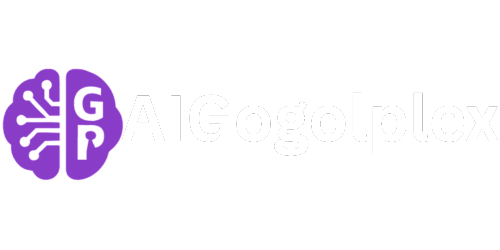Is AI coming for your job or could it be the tool that launches your career to the next level? In today’s fast-changing digital world, knowing how to thrive alongside AI is more important than ever. This article reveals the hidden secrets to staying relevant, marketable, and ahead of the curve. Ready to turn disruption into opportunity? Let’s dive in.
Why AI Is Reshaping the Workplace Landscape
AI isn’t just coming it’s already here. From email sorting to predictive analytics, artificial intelligence is subtly transforming how we work. And it’s moving fast. According to emerging AI trend reports, industries that once resisted automation are now adopting AI-driven solutions at scale.
What does this mean for your career? It means opportunity but only if you’re willing to adapt. Thriving in this new era requires more than basic digital literacy. It means embracing change and learning how to work alongside intelligent machines, not compete with them.
The Biggest Myths About AI and Career Security
One of the most dangerous myths is that AI will completely replace humans in the workforce. While automation is real, it’s not the full story. In fact, new jobs are being created that never existed before jobs focused on data ethics, AI training, and human-AI collaboration.
Another misconception? That only tech professionals need to worry. But whether you’re in marketing, healthcare, logistics, or education, AI is becoming part of your reality. Ignoring it isn’t just unwise it’s a professional risk.
Mindset Shift: Seeing AI as a Partner, Not a Threat
The truth is, AI can become your ultimate sidekick. Just like calculators didn’t eliminate the need for accountants, AI isn’t here to steal your job it’s here to amplify your potential.
For instance, AI can take over repetitive tasks like data entry, freeing you to focus on strategy, creativity, and people-centric work. Tools like ChatGPT, Jasper, and Notion AI can turn hours of work into minutes if you know how to use them wisely.
Skills That Will Always Be in Demand (Even with AI)
Critical Thinking & Emotional Intelligence
AI may crunch numbers and spot patterns, but it lacks emotional nuance. The ability to empathize, listen, and make ethical decisions will always belong to humans. These are your edge.
Creativity and Complex Problem-Solving
AI can remix information, but it can’t dream like you can. The skill of connecting seemingly unrelated ideas to generate innovative solutions is timeless and hard to automate.
Tools and Platforms: Getting Comfortable with Everyday AI
Must-Know AI Tools Across Different Industries
If you want to thrive in an AI-driven workplace, start by mastering common tools. Here are some worth exploring:
- Marketing: Jasper AI, Copy.ai, HubSpot AI
- Finance: Datarails, Koyfin
- Education: Scribe, Quizgecko
- Productivity: Notion AI, GrammarlyGO, Otter.ai
For a deeper look into where AI is headed, read our post on breakthrough AI trends for 2025.
How to Future-Proof Your Role: Real-Life Examples
Case Study: Marketer Who Leveraged AI to Upskill Fast
Jenny, a content marketer, feared she’d be replaced by AI writing tools. Instead of resisting, she learned how to use them. Within months, she was producing triple the output and offering AI consulting on the side.
She now teaches other marketers how to build better campaigns using AI, turning her fear into a new revenue stream.
Case Study: Administrative Assistant Who Became an AI Specialist
After years of scheduling meetings and handling reports, Tom realized AI could do much of his admin work. He began learning prompt engineering and basic automation tools. Within a year, he landed a new job title: AI Workflow Coordinator.
His income rose by 40% and his job security? Bulletproof.
Common Mistakes to Avoid When Adapting to AI
It’s easy to fall into the trap of using AI tools blindly or relying on them for everything. That’s not adaptation that’s delegation without understanding. To thrive, you need to grasp how the tools work and where their limits lie.
Another common mistake? Thinking one tool fits all. Just because ChatGPT is amazing for writing doesn’t mean it’s the best choice for data analysis or project planning. Explore different platforms, test workflows, and tailor tools to your exact role.
And remember: staying still is the biggest mistake of all. Inaction is what places your job in true jeopardy.
Taking the First Step: Start Small, Start Now
You don’t need a tech degree to begin your AI journey. In fact, the simplest thing you can do right now is experiment. Try out a free AI tool. Watch a YouTube tutorial. Sign up for an online course on platforms like Coursera or Udemy.
Don’t underestimate the compound effect of small efforts. A few hours a week can place you light-years ahead of your colleagues within a few months.
Start with tools relevant to your industry. For inspiration, check out our guide on AI in everyday life you’ll be surprised at how much is already automatable.
Final Thoughts: Thrive, Don’t Just Survive
Thriving with AI at work isn’t about becoming a tech guru. It’s about being adaptable, open-minded, and proactive. The hidden secret is this: AI isn’t your competition it’s your leverage.
Make learning a habit. Explore tools that excite you. Stay curious about where your industry is heading. The future belongs to those who act, not those who wait.
Still unsure how AI could impact your specific role? You might want to explore which jobs are at risk of automation and which ones are being created as a result.
Conclusion
AI isn’t here to replace you it’s here to elevate you. By understanding the tools, mastering human-first skills, and making small strategic moves today, you’ll set yourself apart tomorrow. Don’t wait for change to force your hand. Explore, adapt, and thrive with AI at work. Want more strategies? Check out our related guides and keep future-proofing your career journey.
